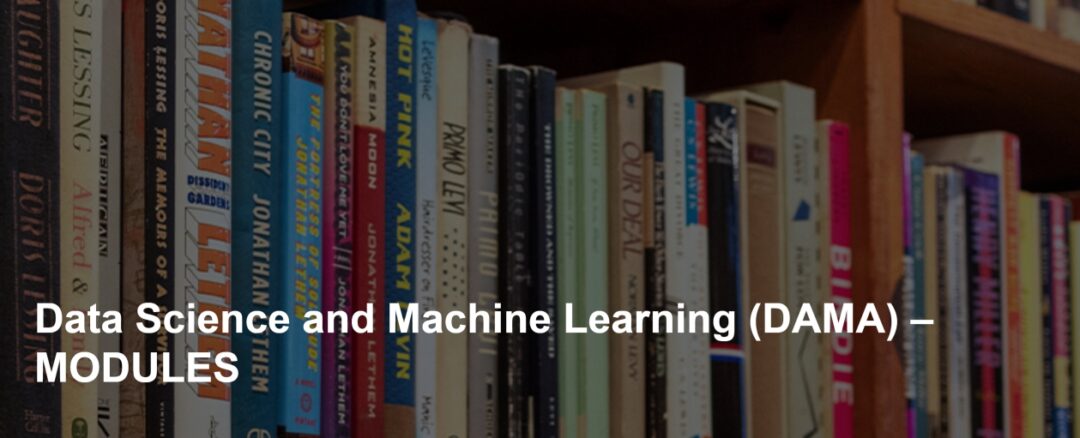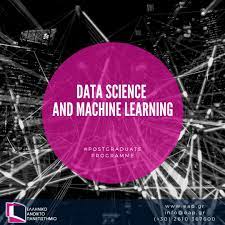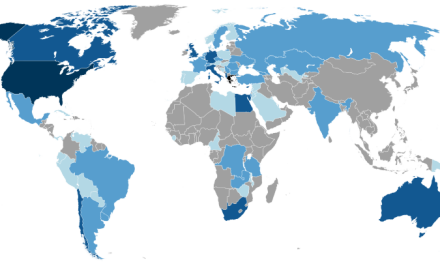The web portal Study in Greece is campaigning for the promotion and international visibility of Greek Universities and the comparative educational advantages of our country. In particular, the campaign focuses on the foreign language study programs that Greek Universities offer to Greek and international students. The initiative is supported by the General Secretariat of Higher Education of the Ministry of Education and Religious Affairs and the General Secretariat for Greeks Abroad and Public Diplomacy of the Ministry for Foreign Affairs. In this context, a number of educational programs and actions are presented in detail on a regular basis, such as undergraduate and postgraduate programs, summer schools etc, to inform international students about the many foreign language options offered by Greek Universities.

Study in Greece interviewed Professor Dimitris Kalles, Director of the Msc in Data Science and Machine Learning offered at the Hellenic Open University (HOU), about the program, its features and what it has to offer to international students.
Dimitris Kalles is Professor at the Hellenic Open University in the field of “Artificial Intelligence – Applications” and Director of the Undergraduate Program “Computer Science” and the Postgraduate Program Data Science and Machine Learning (DAMA). He has worked as a research and development engineer and as a researcher at the Institute of Computer Technology. He has also worked as Technical Director at Ahead Relationship Mediators S.A., of which he was a member of the Board of Directors. In addition, he has worked as an evaluator for the European Commission, for Corallia (Hellenic Initiative for Technological Cooperative Formations) and for other organizations.
Prof. Kalles, could you please explain in simple terms what data science and machine learning are, and how they differ from traditional approaches to data analysis?
Traditional data analysis, to put it in a nutshell, dealt with looking at historical data to identify trends (and help in decision making). Data science and machine learning substantially extend this fundamental objective by taking a more holistic viewpoint, spanning practices which range from collecting, storing and cleaning data, to experimenting with a variety of model building algorithms and understanding the trade-offs between alternatives, to fielding and curating these (usually, predictive) models, to examining how these models might affect the environment they have been applied to and to managing the life-cycle of such projects. Concise answers to why study data science and machine learning and why enroll in DAMA appear in an earlier posting announcing the DAMA program: https://www.linkedin.com/pulse/new-data-science-machine-learning-program-hellenic-open-verykios/.

In the rapidly evolving field of data science and machine learning, what do you see as the most important challenges or obstacles faced by practitioners and how does the program prepare graduates for these?
Many people embark on learning about data science and machine learning by enrolling on well-known self-pace self-learning platforms. While that experience can certainly be an appetizer, grasping a holistic view of the field and its challenges calls for a more disciplined exposition. In that respect, DAMA gradually builds up through two nominal years for full-time students; the first year covers mathematical and algorithmic foundations of data science and machine learning, while the second year covers more advanced algorithms, systems and techniques (and their showcasing in a variety of modern applications). All modules develop a student’s traction with programming, with technologies spanning from the most popular languages (R, Python) to current development frameworks (Jupyter notebooks, TensorFlow and Keras). DAMA is described in detail in: https://www.eap.gr/en/data-science-and-machine-learning/.
Given the rapid pace of technological advancements, how do universities ensure that their data science and machine learning programs stay current with industry trends? Are there mechanisms in place to update curriculum and incorporate the latest tools and methodologies?
HOU is uniquely situated to address this challenge. The modules comprising the program cover all key aspects of the data science and machine learning workflow and are being annually reviewed for currency as well as for the extent to which the expected learning outcomes of the modules are addressed by the homework, tutorial meetings and other learning activities prescribed by the instructors at the start of the year. Additionally, HOU has a strong tradition of internal anonymized assessment, which involves students and instructors, and which provides valuable feedback, on an annual basis, for all aspects of the educational process (quality of material, quality of instruction and interaction, etc.).

Are there specific career opportunities that international students can gain from completing a data science or machine learning program at your university, especially considering the global demand for these skills?
There are two key main tracks for career opportunities, as we see it, based on interactions with our students. The first one concerns students who are already professionally active in one discipline (for example, medicine, finance, insurance, engineering and quality assurance) who are keen to keep pursuing their career but are looking forward to diversifying their knowledge and skill set so as to be more valuable within their industry. The second one concerns students who may be drawing on an even more diversified selection of disciplines (including linguistics and other non-STEM fields) and are planning to pursue a career switch, which allows them to address jobs at a rather wide selection of domains, though at a more junior level. There’s a third track as well, which concerns seasoned or junior professionals with substantial IT training; those are better positioned to better understand the cost-effectiveness trade-offs of machine learning techniques when applied at scale. Currently, about 10-15% of DAMA students are already based outside Greece qualifying for the international “tag”.
What is the perspective of Greek universities on internationalization as a means of enhancing their worldwide competitiveness and positioning Greece as a top academic destination?
HOU, as an open and distance learning university, is distinctly different from conventional Greek universities, so let me expand a bit on my perception of HOU’s viewpoint; by having invested in educational technology for all process of the tertiary education life-cycle, HOU is uniquely positioned to scale-up to address a global audience of adult and life-long learners; regardless of their residence. A limited offering of laboratory-based study programs can, however, be utilized as a means of also inviting students to spend some time in Greece. A final note is also due as regards DAMA: it is offered exclusively in English.

With a number of partnerships and initiatives, the Hellenic Open University is a university that is highly engaged in the field of extroversion-internationalization. How would you rate these initiatives?
HOU has been busy setting up memoranda of understanding with several universities, mainly in Europe and in Asia, with the objective of further exploring the possibility of developing and offering joint study programs, either at an undergraduate or a postgraduate level. Some of the efforts have already culminated in joint programs. Needless to say, HOU is active in international R&D fora, with its faculty actively publishing and participating in joint projects, particularly in the context of EU programs, namely Erasmus+ and Horizon. Last but not least, by actively investing in educational technology and by capitalizing on our methodology, we expect that we will be able to serve international students regardless of their place of residence.
Read also via Greek News Agenda: SIG Masters | Interaction Generative Design at HOU
TAGS: STUDY IN GREECE














